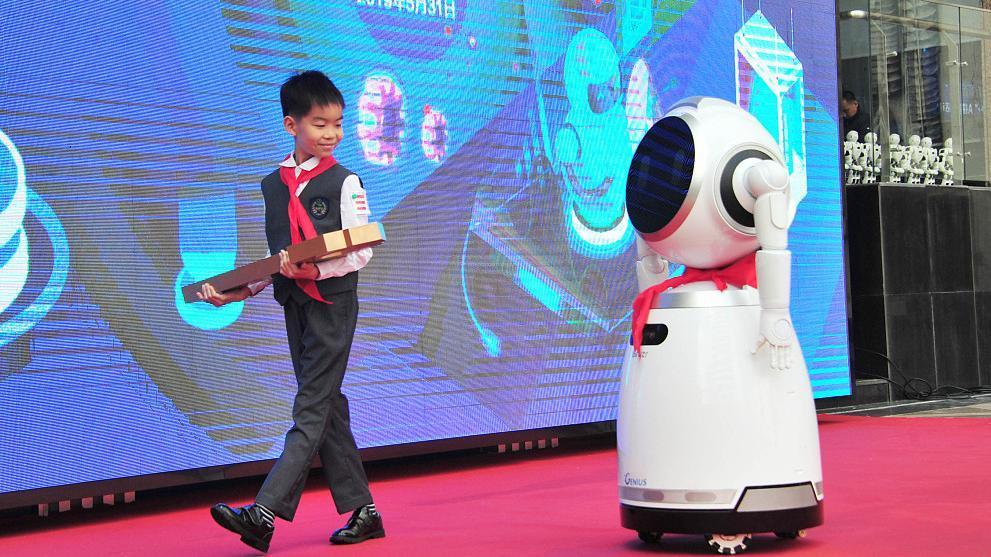CAIRO, Oct. 24, 2021 (Xinhua) An Egyptian mechanical engineer has invented a robot that can extract drinking water by condensing moisture in the air and turning it into drinking water using artificial intelligence technology.
"I started thinking about developing this technology to absorb moisture in the air and turn it into water since 2013," Mahmoud El-Koumi, winner of the Geneva Invention Prize, told Xinhua.
El-Koumi, who is from Tanta, Gharbia Governorate, northwest of Cairo, added that he was inspired by NASA's trips to Mars, noting that "it is known that the weather on Mars is saturated with high levels of humidity, while it is very dry at the same time."
The robot was primarily designed to operate on Mars, but it was tested in climatic conditions similar to those on Mars, according to Elkoumi.
The Egyptian engineer, who previously invented a robot to diagnose infection with the new Corona virus (Covid-19), revealed that he made the new robot manually, and financed the manufacturing process at his own expense.
The 28-year-old engineer explained that the robot can explore areas with the highest humidity to generate water, noting that the country's approach to using artificial intelligence and other technologies was a catalyst for him to manufacture such a device.
He said that the technology for generating water from moisture is not new, but the technologies available now are unable to work in difficult conditions.
And he added, "After obtaining pure water through the process of moisture condensation, the process of adding mineral salts begins until it becomes drinkable."
These salts are added through artificial intelligence technology in proportions that comply with the standards of the World Health Organization, according to Al-Koumi.


"I am testing the water quality in a laboratory provided by the Ministry of Environment in Egypt, and this helps me develop the project to obtain water that conforms to international standards," he added.
One of the most important motives that made El-Koumi think about the manufacture of this robot was "the difficulty of obtaining safe drinking water."
Egypt suffers from "water poverty", where the per capita share is less than 550 cubic meters annually.
According to international standards, a country falls below the water poverty line when the per capita share of renewable water is less than 1,000 cubic meters annually.
Egypt's water resources amount to about 60 billion cubic meters annually, with 55.5 billion cubic meters of Nile water and the rest from rain and groundwater, although its water needs amount to 114 billion cubic meters annually, according to a previous statement by the Minister of Water Resources and Irrigation Mohamed Abdel-Aty.
El-Koumi said, "There is a significant global warming that has caused an increase in humidity in the world, and this prompted me to develop a technology to extract water from moisture to maintain the ecological balance by reducing moisture by exploiting it to generate water."
The Egyptian engineer pointed out that desalinating sea water is very expensive, as each liter costs about 20 US cents, while the cost of generating a liter of water with his device is only 1.5 cents.
Until August 2020, Egypt implemented 65 desalination plants with a capacity of 744,000 cubic meters per day in several governorates, according to a previous statement by Dr. Sayed Ismail, Deputy Minister of Housing, Utilities and Urban Communities for Infrastructure.
El-Koumi added that the device can be used in the desert and obtain energy through solar panels, and thus many desert cities can be reclaimed without high costs.
He pointed out that "the robot consumes 60 watts of energy per day, which is a modest number compared to other water generation technologies, and on Earth it can generate up to 24 liters of water per day."
Using the same technology, plants that generate up to 50,000 liters of water per day can be built in desert areas, where there are no natural water sources, according to the Egyptian engineer.
